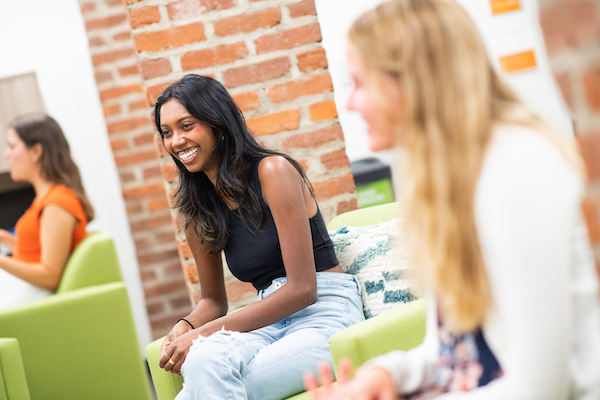
As UVA students eagerly anticipate the upcoming Thanksgiving break, it is crucial to approach this time with a mindful and balanced perspective. The holiday season is often associated with joy, family, and of course, indulgent meals. However, for many students, it can also be a source of stress and anxiety. To set yourself up for a positive experience, here are four essential tips to keep in mind over Thanksgiving break.
1. Connect with your Support System
Thanksgiving often brings a mix of emotions, from joy and nostalgia to stress and anxiety. For those navigating challenges or familial tensions, having a designated person to connect with and a pre-established plan for decompression is key. This individual can be a trusted friend, family member, or a mental health professional. By proactively setting a time to connect with your support system, you create an opportunity to process emotions, receive validation, and gain perspective.
2. Self-Regulate Before and After
If Thanksgiving leaves you feeling more dysregulated, it is important to prioritize self-care before and after the big day. This might include going to bed early, staying hydrated, talking to a friend, or engaging in coping mechanisms. Your mental state can significantly impact your body image and how you perceive physical sensations. If you enter Thanksgiving dysregulated—whether it’s feeling too hungry, tired, or stressed—it sets the stage for a potentially negative experience. Making an extra effort to self-soothe before and after Thanksgiving ensures that, should Thanksgiving prove to be mentally taxing, the emotional impact is contained and is not carried over into the following days.
3. Maintain Perspective
Thanksgiving is often synonymous with feasting, and for college students, this may involve navigating multiple meals with various family members and friends. It is important to maintain perspective and recognize that Thanksgiving is just one day, potentially one meal, or a few. In the grand scheme of your life, month, or year, this is just a small part. Remind yourself that this one food occasion doesn't have the power to significantly alter your physical appearance or health. You'll wake up the next day and feel hungry just like any other day. Keep a fair and realistic view of what Thanksgiving will and will not do to your body.
4. Focus on the Atmosphere
Thanksgiving is more than just a feast; it's about creating memorable experiences and cherishing meaningful moments. Reflect on what aspects of the holiday are genuinely important to you. If it's family, engage in conversations and connect around the table. If it's traditions, participate and enjoy the activities that make the day special for you. Recognize that you don't have to love every single aspect of the day in order to have an overall positive experience; it's about finding a balance that brings you joy. Knowing what you value takes the pressure off and allows you to appreciate Thanksgiving for what it means to you.
Adopting a mindful approach to Thanksgiving break is not just about navigating a few days of festivities—it's about fostering a healthier relationship with oneself and creating a foundation for long-term well-being. By utilizing these strategies, college students can set themselves up for success, ensuring that the positive mindset cultivated during Thanksgiving resonates far beyond the holiday season.

